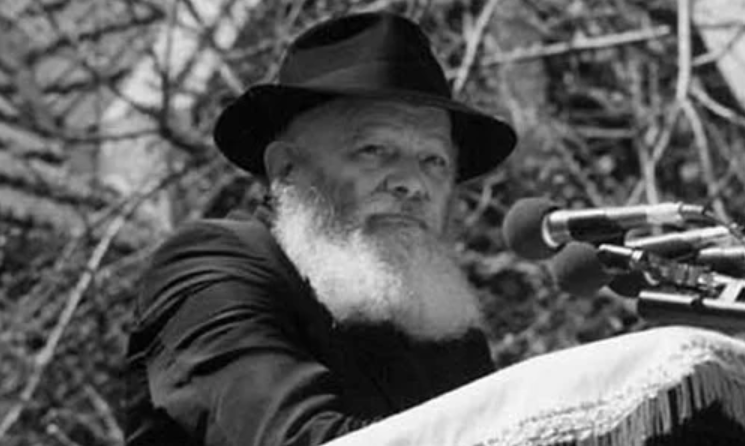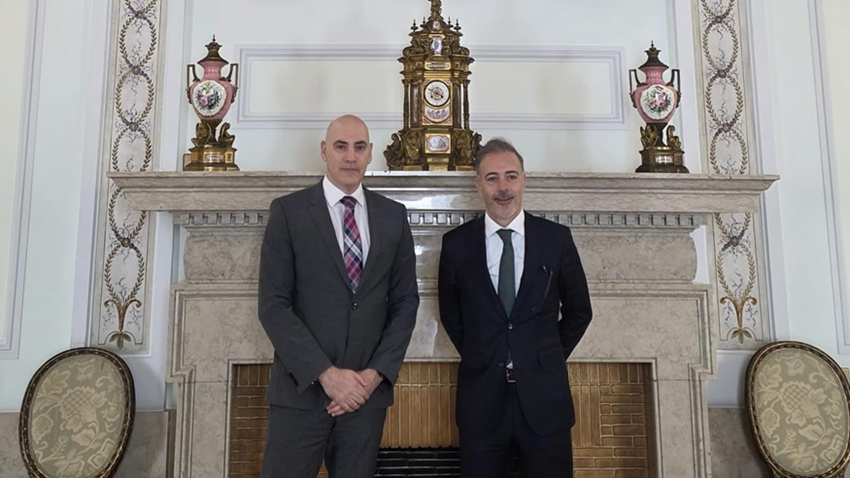Rabbi Menachem Mendel Schneerson. Credit: JEM via TheRebbe.org
Amid the chaos of World War II, Portugal became a key escape route for Jews persecuted by the Nazi regime. Among those who found temporary refuge in the country was a figure who would profoundly transform the course of Judaism in the 20th century: Rabbi Menachem Mendel Schneerson, the future leader of the Chabad-Lubavitch movement.
After escaping Nazi-occupied Paris and enduring months of hardship in Vichy France, the Rebbe and his wife, Rebbetzin Chaya Mushka, arrived in Lisbon, where they boarded the SS Serpa Pinto. On June 23, 1941 (28th of Sivan on the Jewish calendar), they disembarked in New York, a decisive moment in the history of contemporary Jewish spiritual leadership.

The photograph of the Rebbe from his Russian passport. Credit: JEM via TheRebbe.org
Shortly after their arrival, the Rebbe was appointed by his father-in-law, the sixth Lubavitcher Rebbe, Rabbi Yosef Yitzchak Schneersohn, himself rescued from Nazi-occupied Warsaw, to lead the social and educational outreach programs of Chabad-Lubavitch in the United States.
From that moment on, he began a tireless effort to rebuild Jewish life in the West, which would eventually extend across all continents through the emissaries (shluchim) dispatched from the movement's headquarters in New York.
With information from Chabad.org


































